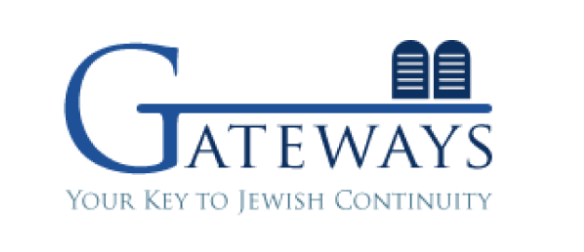Chase Accuses You Of Check Fraud, Threatens To Report You
from the Consumerist.com website
Hey guys--
Dan got a new job (Congratulations, Dan!) and moved from Chicago to Indianapolis. The move meant he had to close his Citibank account and open a new one. He chose Chase because they have lots of branches nearby.
It's too bad they've accused him of check fraud and even Citibank (who issued the check) can't convince them otherwise. Now he's wondering what he should do.
Dan writes:This is Dan who gave you the stunning Buffalo Wild Wings chicken fingers fiasco from a few months with a new major ass-frakking I'm getting from Chase Bank.
I recently moved from Chicago to Indianapolis for a new job, and while in Chicago I had a Citibank account. Well those don't exist in Indianapolis, however there is a Chase Bank every 11 feet and were offering a $100 promotion if you open a new checking account with direct deposit. So on August 20th I went to a local branch, did all that, got the hard sell for every other banking product under the sun, declined but the fella was still nice and set me up with everything. I opened the account with my last Citibank paper check for $200.
So a few days later, using my online bill payment on Citibank, close out the account by mailing myself a check for $1000. I receive that on a Saturday, so Sunday morning I deposit my check into my Chase account. A few days later I received my security deposit on my old apartment back in Chicago for $750 and go to the Chase branch on South Keystone and Hanna in Indianapolis to deposit it. I tried to do it in an ATM machine and it refused my card, so I walked into the bank and spoke with one of the bankers (not the tellers) and said my ATM card was funky. She looks up my account and says my account is frozen because of check fraud. Keep in mind, we're not in an office, but a desk in the middle of the bank. I told her that's impossible and she reports that because I had a check for $1000 on a new account that was deposited in an ATM, those are all red flags for check fraud. I was aghast at this idiocy. She then told me that the check number of the deposited check had been flagged as previously used, and thus was fraudulent, so as a result my entire account was frozen INCLUDING the $200 check I had previously deposited and had been cleared with no problems. I told her this was insane, the check was electronically generated BY CITIBANK, it wasn't ripped out of a checkbook. She called the manager over who looked me straight in the eye, again in the middle of the bank and said loudly "All the evidence points to check fraud, and we need to protect ourselves so I refuse to release any of your money". I told her I was a brand new customer for all of a week, my first check cleared fine and quite frankly I make decent money and am stunned she is treating me as though I'm some thief. I asked her to just call Citibank to verify that was a good check and she refused.
So, I left to go to the branch I opened the account. The banker, Brian Long, is a genuinely nice guy and seemed legitimately interested in helping me. After I vented, he took me into a private office and said we'll call Citibank together to fix this. We did a conference call where Citibank thinks Chase are a bunch of idiots. When a check is generated through online checking, the check number is a randomly generated 12 digit number (not the 4 digit number on paper checks) and the odds of that # being the exact number as another check that I had wrote in the past 12 months were astronomical. Brian checked with his manager who said they need some documentation. Now mind you, this is the FRIDAY BEFORE LABOR DAY. Citibank said they were confused because the check was deposited on the 26 and CLEARED on the 29th, so Chase has the money and doesn't understand why they now want proof of payment. Either way to said that proof and to run a trace on that specific check number would take 3 business days, which means a week before anything is done. So even though we have Citibank telling Chase "you cashed the check, the check is good, why are you on the phone with us?" Chase (via the branch manager) would not unfreeze my account without documentation. Now the problem here is, I no longer have a bank. I closed my Citibank account to deposit everything into Chase. So they now have $1200 plus the $750 I couldn't deposit today, and I have access to NONE of this money. So Brian felt bad and offered to give me cash to tide me over the weekend until this was resolved and I could pay him back, which is phenomenal to say the least.
So I come home from work today to be greeted with a letter from Chase informing me my account would be closed in 10 days and they would report my fraudulent activity to the credit reporting bureaus. It was after 6 when I got home from work so obviously I wasn't able to call anyone at Chase and scream at them. Does anyone have any advice what to do?
Dan
Well, Dan. It might be time to complain to Chase's regulatory agency, the Office of the Comptroller of the Currency. According to the FDIC, the agency should acknowledge the receipt of your complaint within two days. They also give some helpful tips about what to include in your complaint letter.
You should also contact Chase and let them know what you are doing. Perhaps this will wake them up. If the mistake does end up on your credit report, don't worry. You can dispute it. Here are some instructions for disputing inaccuracies on your credit report from the FTC. Anyone else have advice for Dan?
Dan has been jerked around by the employees of Chase at this particular branch. This is not to say that all Chase bank employees are as stupid as those with whom Dan encountered, however, the treatment accorded Dan is appalling.
First, Chase already had their money, transfered by Citi through the electronic funds network (checking account to checking account refered to as an ACH "automated clearing house" transaction). As far as the regulatory side, different laws could be in effect. One comment to the article mentioned the Fair Credit Reporting Act, (FCRA). The FCRA would become a factor here only if Chase actually did report to the three credit repositories (Equifax, Experian and Trans Union) that Dan was in collection for the supposed lost funds. Chase would be in violation of:
§623 Responsibilities of furnishers of information to consumer reporting agencies where it says:
(a) Duty of Furnishers of Information to Provide Accurate Information
(1) Prohibition
(A) Reporting information with actual knowledge of errors. A person shall not furnish any information relating to a consumer to any consumer reporting agency if the person knows or has reasonable cause to believe that the information is inaccurate.
(B) Reporting information after notice and confirmation of errors. A person shall not furnish information relating to a consumer to any consumer reporting agency if
(i) the person has been notified by the consumer, at the address specified by the person for such notices, that specific information is inaccurate; and
(ii) the information is, in fact, inaccurate.
ACH transactions are regulated by the Electronic Funds Transfer Act (EFTA) and fall under Federal Reserve Board Regulation E. In addition, the ACH world has a stand alone body industry regulatory authority known as the National Automated Clearing House Association (NACHA).
Without boring the reader with all the details this issue is not one of fraud or merchant to bank error but plain bank error. In general, with all electronic funds issues, if the consumer disputes a transaction which occurred without the use of an electronic device (ie. debit card) or any means to verify the authenticity of the consumer, the transaction is easily disputable and the consumer cannot legally be held liable. If the consumer's actual electronic device is used and especially if a PIN was used, the dispute is trickier. Nonetheless, with the exception of the PIN situation, the consumer is protected by the EFTA's three tier system of liability based upon the time frame in which the consumer notices the loss in funds (provided that the consumer has not authorized a third party to use the debit card or freely given away access to it. This is not true with traditional credit cards).
However, in Dan's case, none of this applies. His situation consists purely of a bank error. The bank is indeed the harming party. However, for technical purposes if the bank suspects fraud they may take up to 10 days to review the case without re-crediting Dan's money. If the investigation takes longer than 10 days, Dan must be given full access to all of his money while the bank finishes it's investigation.
In any event, Dan should still file a complaint with Office of the Comptroller of the Currency (OCC) since Chase is employing people who have not been properly trained in fraud investigation and thereby caused "confusion and delay". Chase needs to employ the services of a specialist in fraud operations (a Certified Fraud Examiner - "CFE") with bank specific knowledge who can train bank officers to understand the parameters of making fraud claims. IMHO There should be one CFE supervisor for every certain number of branches or cities whichever is feasible. Chase should never let this happen again. Enough fraud goes unreported that to victimize legitimate customers is inexcusable.
























































0 comments:
Post a Comment